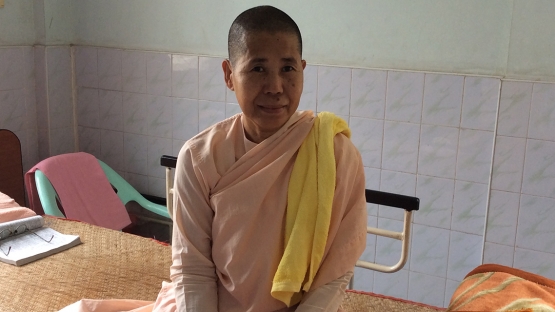At the end of 2015, Myanmar received the first UN inter-agency expert team of cancer specialists coordinated by the IAEA's Programme of Action for Cancer Therapy (PACT) in coordination with the World Health Organization (WHO) Regional and Country Offices and the International Agency for Research on Cancer (IARC). The team visited a broad range of health care institutions in Nay Pyi Taw, Yangon and Mandalay, from primary to tertiary levels of care, including private hospitals, and met with representatives from the Government, academia and non-Governmental Organisations.
According to IARC[1], Myanmar faced an estimated 64 000 new cancer cases in 2012 and this figure has been on the rise. Cancer deaths are predicted to increase by over two thirds by 2030. While some cancer care services, such as surgery and radiotherapy, are generally free to the public at the three main cancer hospitals, ensuring affordability and access for the majority of the rural population remains a major challenge.
The Director of the IAEA's Programme of Action for Cancer Therapy (PACT), Ms Nelly Enwerem-Bromson, who led the mission, underlined that, "the intensified collaboration between the Government of Myanmar and PACT provides an excellent opportunity to enhance comprehensive cancer control services and at the same time to strengthen the national health system. These two goals are fully complementary. It is furthermore essential to look at how these services can be offered in a way that supports equitable and affordable access for all people of Myanmar."
In the view of the WHO representative, Dr Jorge Luna, the conduct of the imPACT review mission was very timely given that the Government is planning to develop a national universal health coverage plan and the strong interest in reducing the cancer burden in the country.
Dr Khin Cho Win, Head of the Radiotherapy Department at the Yangon General Hospital expressed his concern about the [Hospital's] difficulties in coping with the increasing public demand for our services. "We have too few facilities and insufficient numbers of trained staff to cope with the growing number of cases that we see."



